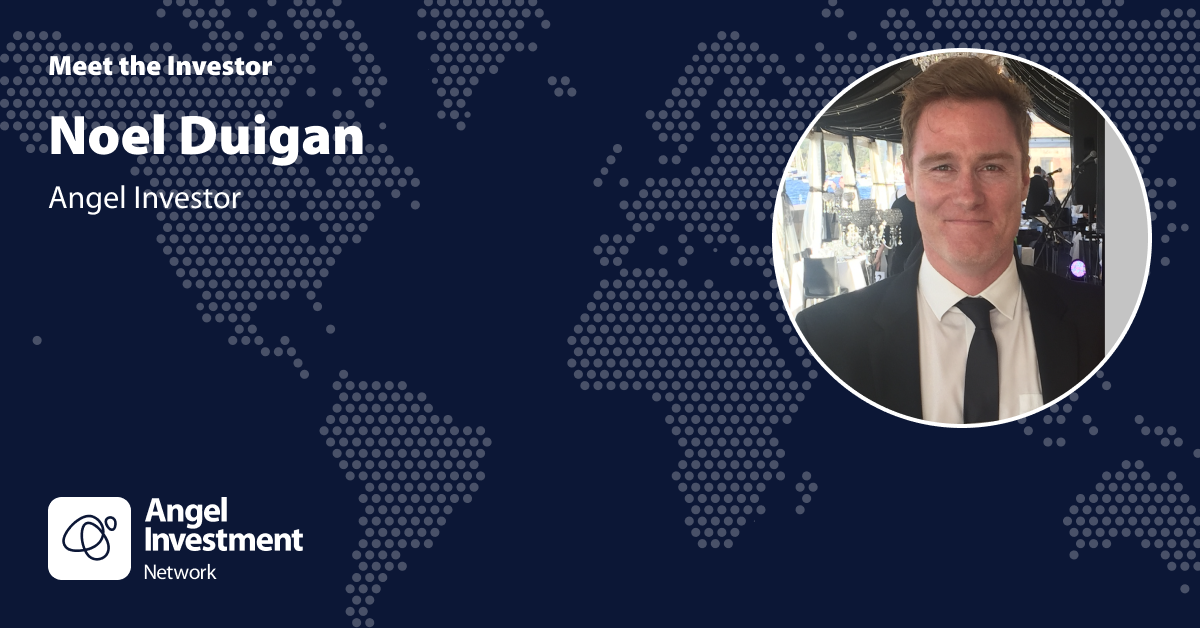
Meet The Investor: Joanna Jensen
By Toby Hicks
In our latest Meet The Investor interview, we are delighted to hear from Joanna Jensen, chair of the Enterprise Investment Scheme Association (EISA), and founder of Childs Farm. She discusses her motivations for backing challenger brands to the key foundations of investor-founder relationships. She also looks at current market trends, the importance of social responsibility, and what the UK Government needs to now do to better support the UK’s startup ecosystem.
Why did you become an angel investor?
Because I have an absolute belief that Challenger Brands deliver consumers and businesses what they need, as opposed to what big businesses think they need. The journey an SME takes is full of twists and turns – some fabulous, some horrific – and I understand this better than many. To be able to be a sounding board to other founders, helping them on their journey to success is a real honour. And it gives me the ability to go on their journey with them in a very small way – and without any stress! Owning M&S shares is a little dull in comparison.
Which sectors or new investment opportunities are you most excited about right now?
Right now, I think it’s a struggle for many SME’s as they come to terms with the additional costs the recent budget has added to their business, whilst battling with the ongoing COGs and Staff costs. The looming One-Day Employment law change adds another level of uncertainty to this collective.
But I think food innovation is always exciting, and right now I’d say Collagen and anything to do with Gut Health represents a positive opportunity. And – because no one is interested right now – apparel. I also think there are constant opportunities in tech – but it’s like the wild west when it comes to picking a winner in this space.
What are the key foundations to building a strong relationship between investors and founders?
Communication. Clarity of information. Not taking things personally. Patience.
What common misconceptions do you encounter among founders about the fundraising process, and how can they better prepare themselves to address these?
Your initial start up investors have taken a huge risk in backing you in the first instance. So be respectful towards them as your business grows and you look to obtain further investment. Too often I see original and early stage investors being overlooked by founders as some glossy, shiny suited VC waves a large cheque around.
Founders forget about their Articles and existing shareholder Pre-emption rights. And they forget to look after their early stage angels. And when the cheque waving, super heroes change their minds and wander off to something else that takes their fancy, not only do they find themselves dispirited, but also a little less loved by their existing shareholders.
What are the most important factors that lead you to back startups today and has this changed over the years?
It’s always two things: Firstly the founder – their energy, their intelligence, their ambition, their drive, their resilience. The Second is the product/ brand or product. Is there an need? Is there a consumer out there for it and who are they? These have always been and will remain the most important factors to me.
Can you share a specific experience where an unexpected challenge influenced your investment decision, and what lessons did you learn from that situation?
I pulled together a syndicate to invest in a consumer product in which we were all very excited. Throughout the course of our meetings though, of the two female founders one was very dominant, the other silent. We agreed to send in a trusted friend and potential chairman to the business for a week to really understand the relationship between these two women, and the financials which still seemed to have some gaps.
It was then we discovered that all the investment we were putting in was to pay off debts, and that the partnership wasn’t as harmonious as they claimed. Never expect to secure an investor if all of their funds are to pay off your suppliers and aged debtors. Investors are looking to invest for growth going forward; not for financial mis-management of the past. Needless to say, we had a very difficult conversation – when the dominant founder did not cover herself in glory – and we declined to invest.
How do you measure the impact of an investment beyond just financial return, and does social responsibility play a role in your investment strategy?
I think it is absolutely possible to unite sustainable, and socially responsible businesses with success. The two should be mutually united. I always look for businesses who have social responsibility at their core.
As market trends and economic situations evolve, what approaches are you employing to mitigate risks while identifying promising startups?
Obviously any investor has to have a diversified portfolio. Mine is a little Scale up heavy, but that’s my area of expertise and understanding. My rule of thumb is that whatever I invest in, I continue to financially support as it grows. I think a good investor is a constant investor. The only thing that would change that is if the business is not working as it should, or if personally I can’t afford it! Right now, the resilience of the founder is of paramount importance.
You’ve talked about the importance of dreaming big. How can we encourage more girls to follow in your footsteps and dream big and become successful entrepreneurs?
I would strongly recommend listening to lots of Podcasts featuring entrepreneurial women to hear what it really takes to be a successful entrepreneur. I would also encourage any young girl who is not sure what they want to do, to stick to what they enjoy in their further learning. And if still unsure, do an Accountancy Course. Understanding the numbers is vital in any business so even if you don’t start up your own, it will help you in any other career you choose.
If you could offer just one piece of advice to a young startup, what would it be?
Know your consumer, know your consumer, know your consumer.
You’ve been vocal about the potential negative impact for startups of the recent Budget. What should the new Government now do to better support the UK’s startup ecosystem?
Increase the boundaries of the S/EIS schemes. The investment numbers and timings are set not to change for another 10 years, and they have been the same for the last 20. We need to significantly raise the level of investment that SME’s can accept under this scheme – currently £12mn, and £20mn for knowledge intensive businesses – as well as to allow them to seek investment for longer.
Female Founded brands in particular often lose out because they have run their business whilst they have brought up a family so that when they are ready to devote time to it, the 7 year first investment deadline has passed.
Joanna Jensen is chair of the Enterprise Investment Scheme Association (EISA), and is founder of Childs Farm, the UK’s no.1 baby & child skincare brand. She is an Angel Investor in 12 female founded brands, products and services.
Related posts
Understanding what drives angel investors is essential for any startup seeking funding. It’s not just about showcasing ...
Read more
arrow_forwardTwenty years ago two childhood friends, with a shared passion for entrepreneurship, embarked on a journey to revolutionise th...
Read more
arrow_forward‘Founders need to be passionate, driven, and fully committed in the longevity and future of their company.’ These...
Read more
arrow_forward


